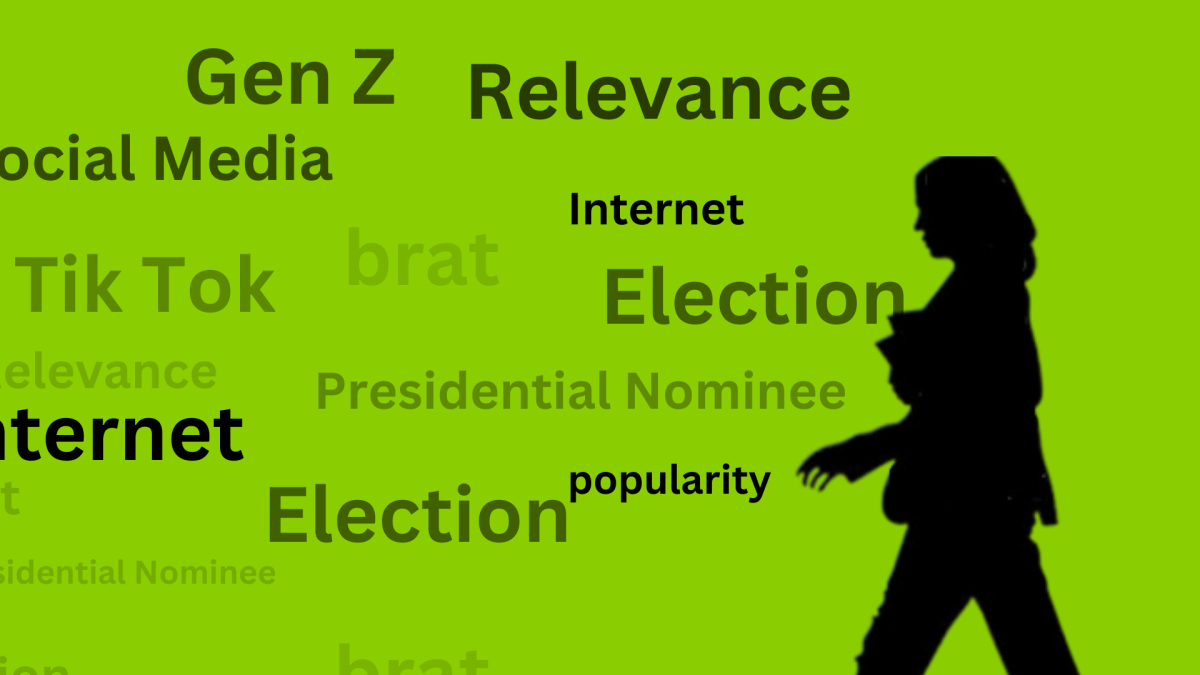Following President Joe Biden’s drop from the 2024 election, Biden left his support for his Vice President, Kamala Harris. Standing as the new democratic presidential nominee, her next step into the limelight was crucial. However, no one could have expected her campaign trail to go bright neon green. As the public and news outlets tried to figure out the meaning of being “brat,” Harris took the political scene by storm.
To go into more detail, after becoming an endorsed presidential contender, Harris’s campaign team decided to hop onto a viral Gen Z trend. The trend, called “brat summer,” was based off Charli xcx’s newest album, “brat.” The craze was accompanied by edits of neon green colors and the iconic album name in arial text. Any media linked to this trend also embraced the fun party girl aesthetic that the album curated through its songs. It was then where Harris’s character also became synonymous with the “brat” trend, boosting her likability.
“[Attempts at slang are] being perceived better this election cycle than in prior election cycles,” said Ethan Kane, AP Government and Politics teacher at Argo. “I think it all comes down to how well it’s done.”
As Kane has said, over the years, politicians have been trying to relate with the growing demographic of young voters. Harris, it seems, has been the only one able to connect with them. Even so, this tactic of relatability isn’t only about seeming likeable, it’s about enhancing the number of voters for each political party. Relevance could sway voters’ opinions of each nominee and in turn, determine whether they vote for one candidate or even vote at all.
“It’s about trying to stay relevant [to those constituents],” said Kane. “Especially when young voters historically don’t turn out at elections very much.”
Although participating in trends and keeping up with social media might allow a candidate to boost their chances of winning, it could also be their downfall. Government and Civics teacher at Argo, Alexandra Maceika, also shares this sentiment, commenting on the cancel culture that the internet has adapted to and how it could happen to these candidates.
“No matter what, even if you’re on Tik Tok, and using this lane, there’s going to be other generations that [will say] ‘this is not acceptable,’” said Maceika. “That’s just the part of politics.”
Despite the usefulness of trends among politicians, it should be noted that engaging in these fads shouldn’t be all a voter is looking for. A person’s opinion of each candidate should not be based on how they participate in social platforms. Instead, it should be based on research behind the candidates’ background, involvement in prominent issues, and qualities that resemble a good leader for the country. That is what should be the determining factor of who becomes the next president.







